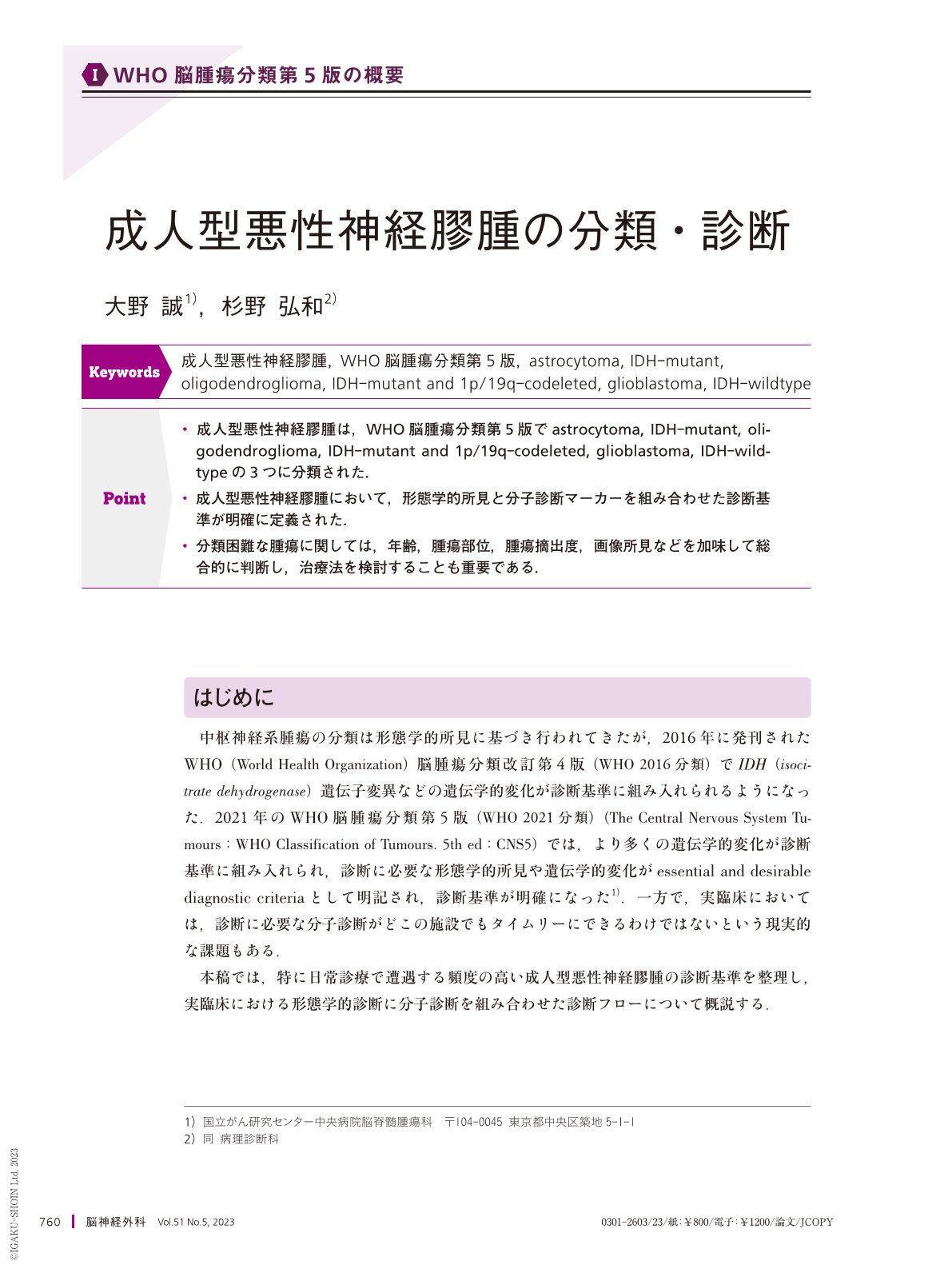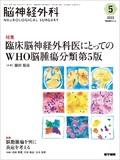Japanese
English
- 有料閲覧
- Abstract 文献概要
- 1ページ目 Look Inside
- 参考文献 Reference
Point
・成人型悪性神経膠腫は,WHO脳腫瘍分類第5版でastrocytoma, IDH-mutant, oligodendroglioma, IDH-mutant and 1p/19q-codeleted, glioblastoma, IDH-wildtypeの3つに分類された.
・成人型悪性神経膠腫において,形態学的所見と分子診断マーカーを組み合わせた診断基準が明確に定義された.
・分類困難な腫瘍に関しては,年齢,腫瘍部位,腫瘍摘出度,画像所見などを加味して総合的に判断し,治療法を検討することも重要である.
The Central Nervous System Tumours: WHO Classification of Tumours, 5th ed.(WHO CNS5)incorporates molecular pathogenesis with histopathology to classify brain tumors into more biologically and narrowly defined entities. According to this approach, adult-type diffuse gliomas are classified into three tumor types: astrocytoma, IDH-mutant; oligodendroglioma, IDH-mutant and 1p/19q-codeleted; and glioblastoma, IDH-wildtype. Astrocytoma and oligodendroglioma are clearly defined as IDH-mutant tumors, and glioblastoma as an IDH-wildtype tumor. WHO CNS5 provides clear diagnostic criteria framed as“essential and desirable diagnostic criteria,”including histopathological and molecular features.
In this article, we summarized the diagnostic and grading criteria of adult-type diffuse gliomas, which include histopathological and molecular features. Further, we presented a clinical diagnostic workflow based on the immunohistopathological studies, molecular tests and their surrogate assays, and histopathological features to establish the diagnosis of adult-type diffuse gliomas. We also discussed the limitations of the clinical diagnostic workflow; for instance, some tumors may not fit within this classification provided by this diagnostic flow. Despite these limitations, we are required to utilize the diagnostic criteria and determine optimal treatment in the clinical setting.

Copyright © 2023, Igaku-Shoin Ltd. All rights reserved.


